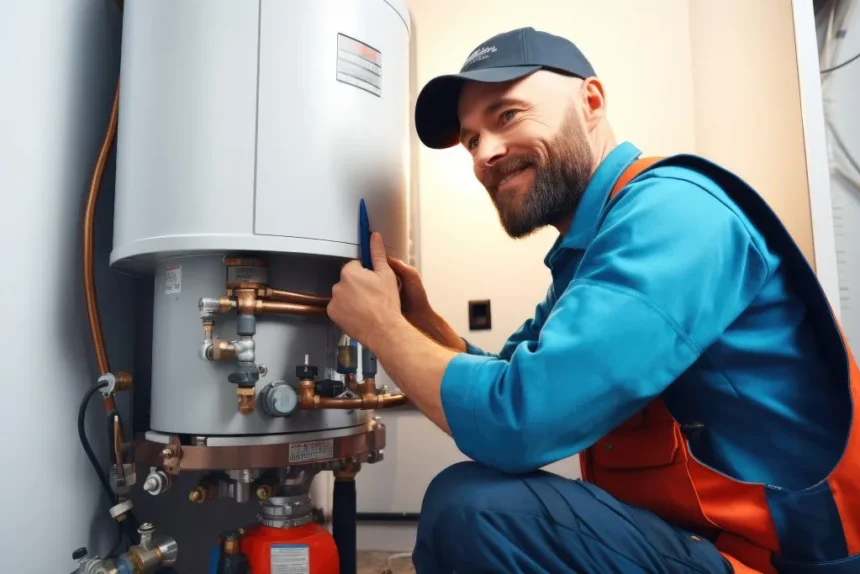Water heaters provide hot water for dishwashing, laundry, cooking, and general cleaning. During the cold months, you can connect your water heater to the radiator to warm your house. If you select an energy-efficient water heater, you reduce energy consumption and get a consistent supply of hot water. Here are some tips for selecting the right water heater and how plumbers can help you do that:
Select the Type of Fuel
Water heaters can use several different fuel sources, from natural gas and propane to electricity and solar energy. Those that use natural gas require proper ventilation and a consistent supply of gas, while those that use propane require installation of a propane tank. Once the propane tank and the necessary connections are in place, a plumber can install the propane water heater. Experienced plumbers are trained in connecting the water lines, venting the system, and verifying proper operation.
If you prefer not to install additional features, purchase an electric water heater. This type of water heated requires safety features such as a circuit breaker and a pressure relief valve. If you have solar panels on your property, choose a water heater that uses solar power. Solar water heaters may require a backup energy system for cloudy days or during periods of high energy demand.
Choose the Right Size and Capacity
The number of people in your house and their water usage patterns determine the size of the tank that you need. If certain activities such as dishwashing, laundering, and showering happen frequently in your household, a plumber may recommend a large water tank. Your ideal tank should also have a high recovery rate if the demand for hot water in your home is high. A high recovery rate refers to the ability of the water tank to restock the hot water supply after use. The recovery rate may depend on the fuel type, the water inlet temperature, and the burner or heating element’s size.
The tank size, flow rate, and heat exchanger efficiency may also affect the recovery rate. To identify the appropriate tank size, calculate the peak demand by determining the amount of hot water required by each fixture, such as the washing machine, dishwasher, and shower. Once you have found the total water usage, compare it with the amount of water coming from the water tank. Working with an experienced plumber will help you determine a suitable water heater for your home and plumbing system.
Know the Energy Efficiency
The energy factor (EF) measures the efficiency of a water heater by evaluating the amount of water heated per unit of fuel consumed over a day. If a water heater consumes less fuel to heat a specific amount of water, it has a higher EF value. Water heaters are then given a rating based on their performance and efficiency. This rating is known as the uniform energy factor (UEF) and may include factors like usage patterns when determining the appliance’s overall energy efficiency. Using UEF, you can classify water heaters into groups such as very small, low, medium, and high. This allows you to compare water heater appliances found in the same group, enabling you to choose one that meets your efficiency requirements.
Energy Star certification is another way to determine the efficiency of your water heater. This rating was created by the Environmental Protection Agency (EPA) and uses different criteria, such as standby losses. Plumbers can also refer to the EnergyGuide label. This label provides an estimated annual operating cost and compares the water heater’s efficiency to similar models. It helps consumers understand the efficiency and cost implications of their choices.
Purchasing energy-efficient water heaters offers several potential advantages, including lower energy bills and improved performance over time. Some energy-efficient water heaters use advanced technologies that provide better heating performance and more consistent hot water delivery. Your plumber may also have information about cash rebates or other incentive programs for those who purchase energy-efficient water heaters.
Partner With a Reliable Team of Plumbers
Professional plumbers can help you purchase a suitable type of water heater and determine where to install it in your home. They can then connect the water heater to your existing plumbing fixtures and conduct periodic maintenance. Contact a professional plumber near you for assistance.






